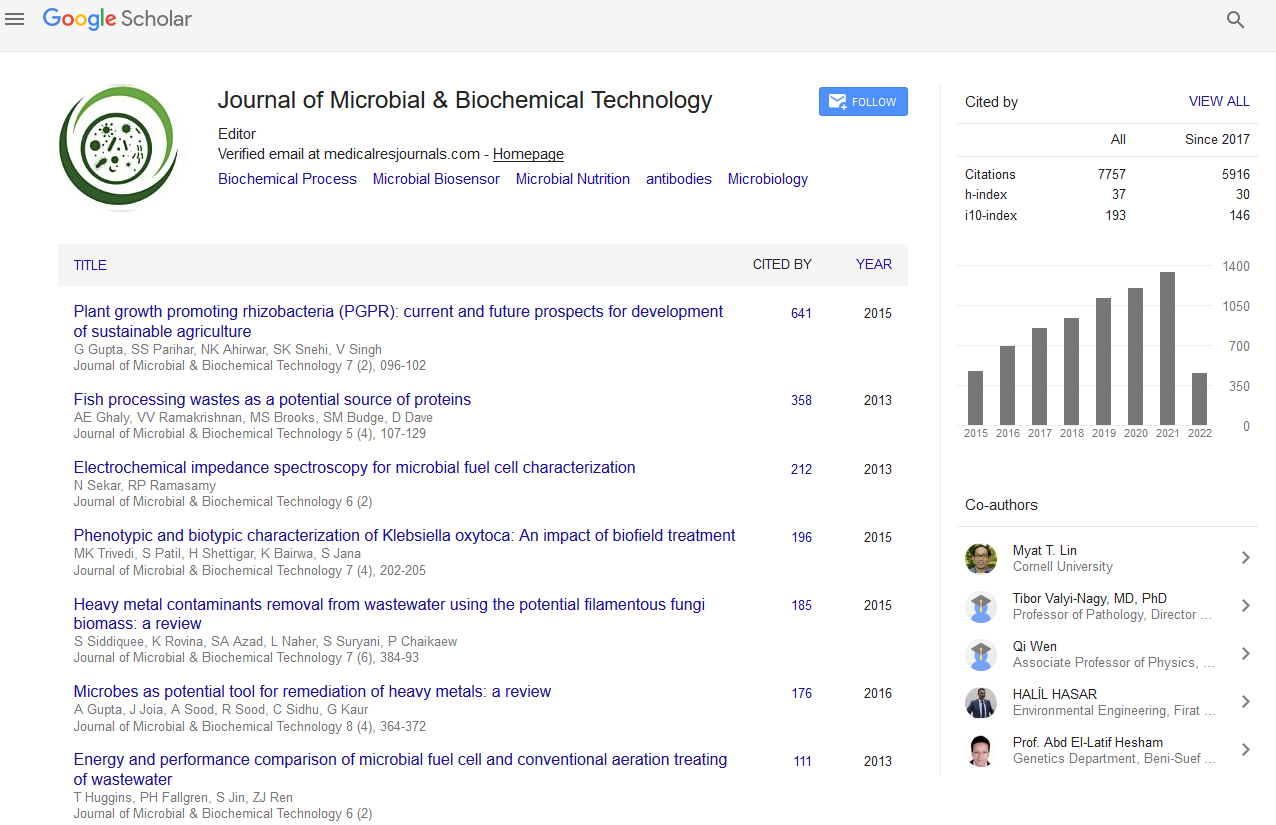PMC/PubMed Indexed Articles
Indexed In
- Academic Journals Database
- Genamics JournalSeek
- Academic Keys
- JournalTOCs
- China National Knowledge Infrastructure (CNKI)
- Scimago
- Access to Global Online Research in Agriculture (AGORA)
- Electronic Journals Library
- RefSeek
- Directory of Research Journal Indexing (DRJI)
- Hamdard University
- EBSCO A-Z
- OCLC- WorldCat
- SWB online catalog
- Virtual Library of Biology (vifabio)
- Publons
- MIAR
- University Grants Commission
- Geneva Foundation for Medical Education and Research
- Euro Pub
- Google Scholar
Useful Links
Share This Page
Journal Flyer

Open Access Journals
- Agri and Aquaculture
- Biochemistry
- Bioinformatics & Systems Biology
- Business & Management
- Chemistry
- Clinical Sciences
- Engineering
- Food & Nutrition
- General Science
- Genetics & Molecular Biology
- Immunology & Microbiology
- Medical Sciences
- Neuroscience & Psychology
- Nursing & Health Care
- Pharmaceutical Sciences
Abstract
Endophytic Bacteria from Datura stramonium for Fusarium Wilt Suppression and Tomato Growth Promotion
Rania Aydi Ben Abdallah, Hayfa Jabnoun-Khiareddine, Ahlem Nefzi, Sonia Mokni-Tlili and Mejda Daami-Remadi
Ten nonpathogenic bacterial isolates, recovered from Datura stramonium organs, and successfully colonizing the internal stem tissues of tomato cv. Rio Grande were screened for their ability to suppress tomato Fusarium wilt, caused by Fusaium oxysporum f. sp. lycopersici (FOL), and to enhance tomato growth. S37 and S40 isolates were found to be the most effective in decreasing leaf yellowing by 94-88% and the vascular browning extent by 96-95%, respectively, as compared to FOL-inoculated and untreated control. A significant enhancement of growth parameters was recorded on tomato plants inoculated or not with the pathogen. The two bioactive isolates were morphologically and biochemically characterized and identified using 16S rDNA sequencing genes as Stenotrophomonas maltophilia str. S37 and Bacillus mojavensis str. S40. Screened in vitro for their antifungal activity toward FOL, these strains led to 43.8 and 39% decrease in pathogen radial growth and to the formation of an inhibition zone of about 11.37 and 12.12 mm in diameter, respectively. S. maltophilia str. S37 and B. mojavensis str. S40 were found to be chitinase-, protease- and pectinase-producing strains but only S. maltophilia str. S37 was able to produce the volatile metabolite hydrogen cyanide. Indole-3-acetic acid production, phosphate solubilizing ability and pectinase activity were investigated for elucidating their plant growth promoting traits and their endophytic colonization ability. To our knowledge, this is the first report on endophytic bacteria from D. stramonium exhibiting Fusarium wilt suppression potential and plant growth-promoting ability on tomato.


